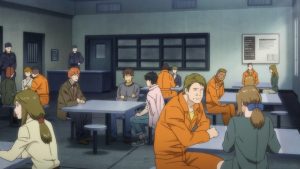 It’s funny, but I’m really struck by how much Banana Fish plays like something from the 80’s even if the setting has been changed to the 2010’s. There’s no practical reason why any of this premise can’t work as a contemporary piece – Iraq makes a logical stand-in for Vietnam, and the drug story is pretty much timeless. But somehow, when I’m watching this show it feels like it’s 30 years old – like a combination of some old Sunrise anime and an American TV cop show with a whole bunch of sexual violence thrown in.
It’s funny, but I’m really struck by how much Banana Fish plays like something from the 80’s even if the setting has been changed to the 2010’s. There’s no practical reason why any of this premise can’t work as a contemporary piece – Iraq makes a logical stand-in for Vietnam, and the drug story is pretty much timeless. But somehow, when I’m watching this show it feels like it’s 30 years old – like a combination of some old Sunrise anime and an American TV cop show with a whole bunch of sexual violence thrown in.
 That’s not a deal-breaker obviously, but on balance I think it is a negative for me. As much as it’s interesting, there is a tangible disconnect that makes me wish the series had just been adapted as a period piece. I think that would make some of its more stylized and frankly outlandish impulses more natural. But be that as it may, there’s no question Banana Fish is not going for photo-realism, whatever decade you set it in. It’s almost operatic in a way, or at least Broadway – it actually puts me in mind of a musical as I’m watching it, even without the music.
That’s not a deal-breaker obviously, but on balance I think it is a negative for me. As much as it’s interesting, there is a tangible disconnect that makes me wish the series had just been adapted as a period piece. I think that would make some of its more stylized and frankly outlandish impulses more natural. But be that as it may, there’s no question Banana Fish is not going for photo-realism, whatever decade you set it in. It’s almost operatic in a way, or at least Broadway – it actually puts me in mind of a musical as I’m watching it, even without the music.
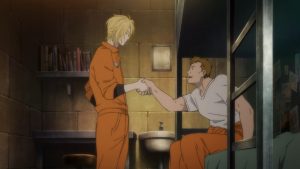 The introduction of Max Lobo (Hirata Hiroaki) closes one major loop in the story. It’s certainly a massive coincidence that he’s in the same prison that Dino has Ash sent to (state prison – for a seemingly minor assault?), and that he’s friends with Charlie. He’s the one who Charlie’s asked to look after Ash in prison – no small task as Ash is hardly easy to look after. He calls a lot of attention to himself and isn’t the sort to quietly stay out of trouble. Not that it would have mattered, since Dino’s stooge Garvey (Tsuda Kenjirou – Vincent and Mutta, reunited at last) is under instructions to take him out.
The introduction of Max Lobo (Hirata Hiroaki) closes one major loop in the story. It’s certainly a massive coincidence that he’s in the same prison that Dino has Ash sent to (state prison – for a seemingly minor assault?), and that he’s friends with Charlie. He’s the one who Charlie’s asked to look after Ash in prison – no small task as Ash is hardly easy to look after. He calls a lot of attention to himself and isn’t the sort to quietly stay out of trouble. Not that it would have mattered, since Dino’s stooge Garvey (Tsuda Kenjirou – Vincent and Mutta, reunited at last) is under instructions to take him out.
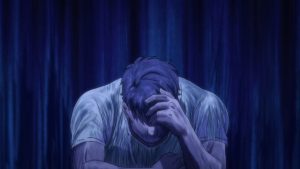 Garvey and his boys rape Ash not long after his arrival, but he seems in no hurry to actually kill him, and Ash is a survivor if nothing else. He’s got something to live for on the outside, all the more so after he and Max realize their shared connection through Griffin. Ash’s anger at Max is understandable if misplaced, especially considering that someone with his aspirations and as many enemies as he has really should be thankful for whatever allies he can find.
Garvey and his boys rape Ash not long after his arrival, but he seems in no hurry to actually kill him, and Ash is a survivor if nothing else. He’s got something to live for on the outside, all the more so after he and Max realize their shared connection through Griffin. Ash’s anger at Max is understandable if misplaced, especially considering that someone with his aspirations and as many enemies as he has really should be thankful for whatever allies he can find.
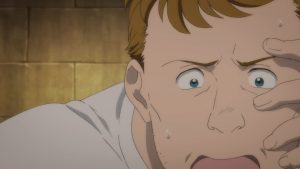 Ash’s plan to get a message to Eiji reveals both how clever and how stupid – or more charitably, naive – he is. Why would he choose Eiji to be his messenger here, one wonders? Perhaps because he’s someone Ash thinks won’t engender much suspicion, but Eiji is ill-equipped to handle this mission. His carelessness soon enough gets him captured by Arthur, and I’m guessing probably has gotten the doctor who was investigating Banana Fish for Ash (and treating his brother) captured too, if not killed.
Ash’s plan to get a message to Eiji reveals both how clever and how stupid – or more charitably, naive – he is. Why would he choose Eiji to be his messenger here, one wonders? Perhaps because he’s someone Ash thinks won’t engender much suspicion, but Eiji is ill-equipped to handle this mission. His carelessness soon enough gets him captured by Arthur, and I’m guessing probably has gotten the doctor who was investigating Banana Fish for Ash (and treating his brother) captured too, if not killed.
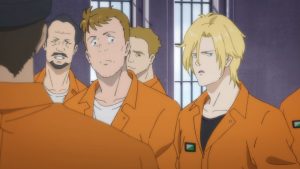 So is this all working for me? I realize in reading through the above that it’s kind of hard to tell, but on balance I would say yes – in an odd sort of way. I don’t find any of Banana Fish especially believable, and that limits the extent to which the story engages me. But again, what it reminds me of is a musical or an opera – a spectacle to be appreciated for its own sake (though the best of them are certainly more than that). I think I would enjoy Banana Fish more if it were gritty and realistic, because then the terrible things that happen on-screen would have more immediacy and impact. But that doesn’t mean the series can’t be successful as it is – it can, but with a certain emotional disconnect as the price of admission.
So is this all working for me? I realize in reading through the above that it’s kind of hard to tell, but on balance I would say yes – in an odd sort of way. I don’t find any of Banana Fish especially believable, and that limits the extent to which the story engages me. But again, what it reminds me of is a musical or an opera – a spectacle to be appreciated for its own sake (though the best of them are certainly more than that). I think I would enjoy Banana Fish more if it were gritty and realistic, because then the terrible things that happen on-screen would have more immediacy and impact. But that doesn’t mean the series can’t be successful as it is – it can, but with a certain emotional disconnect as the price of admission.


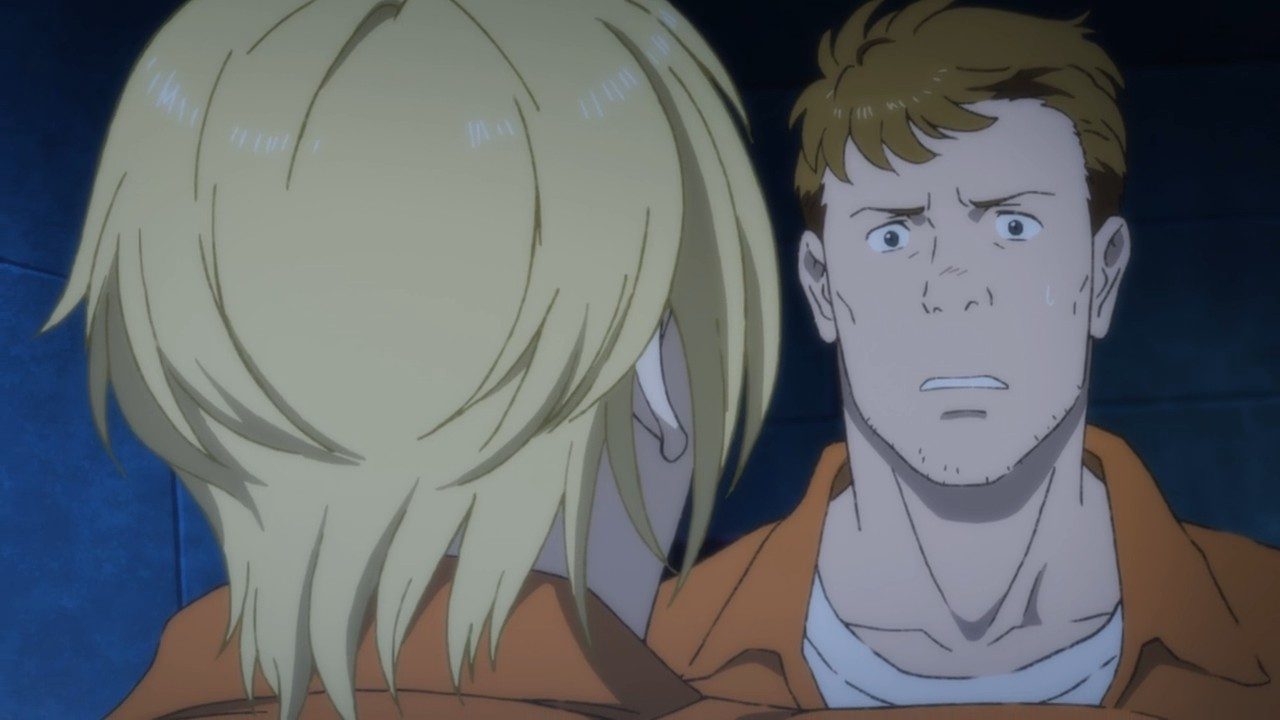
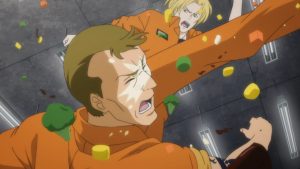
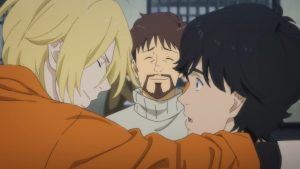
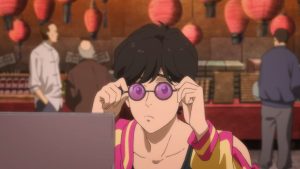
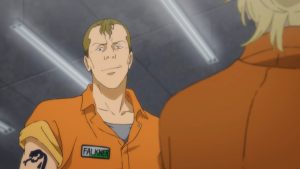
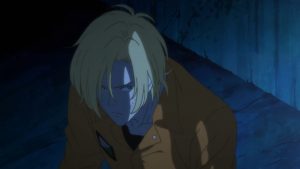
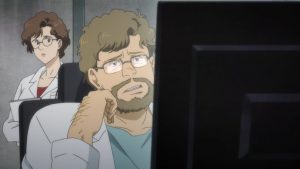
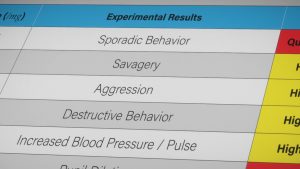


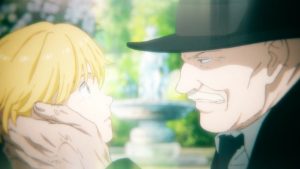
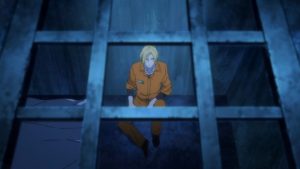
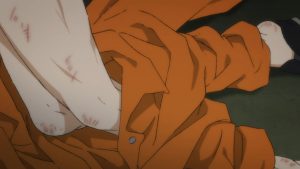
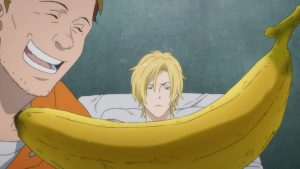
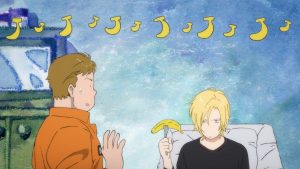
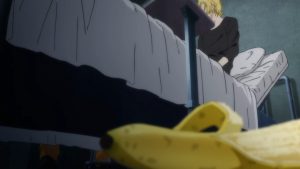
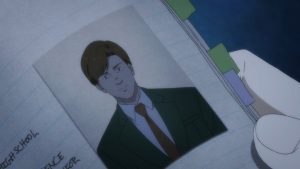

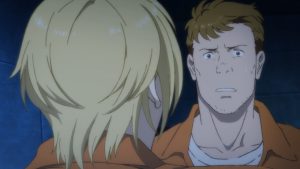
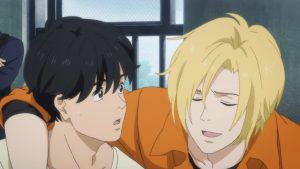
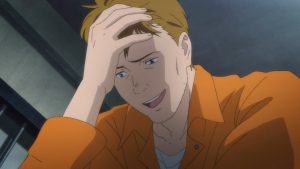
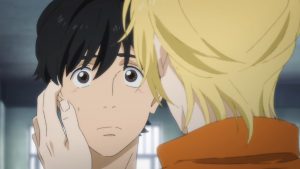
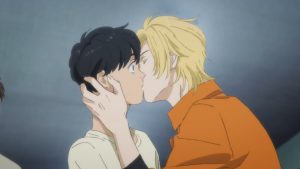
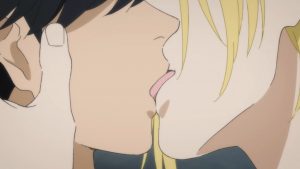
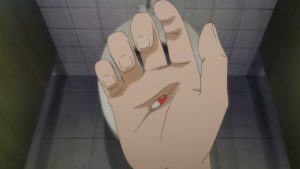
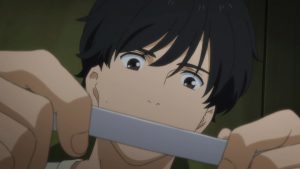
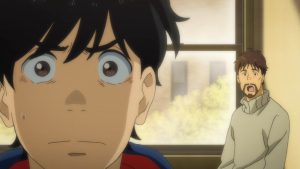

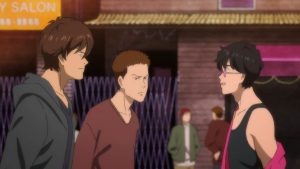
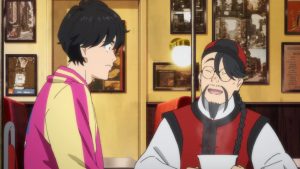
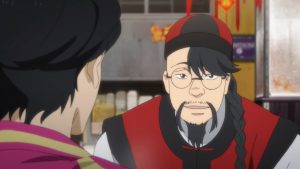
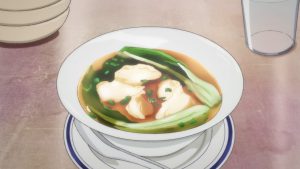
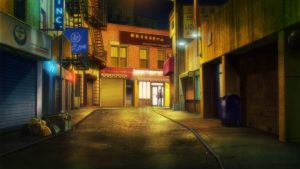
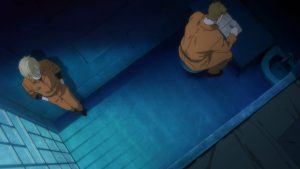
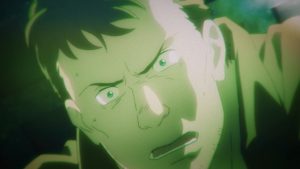
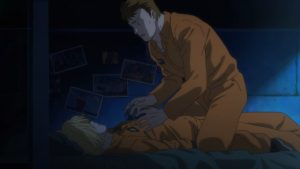
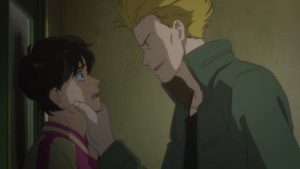
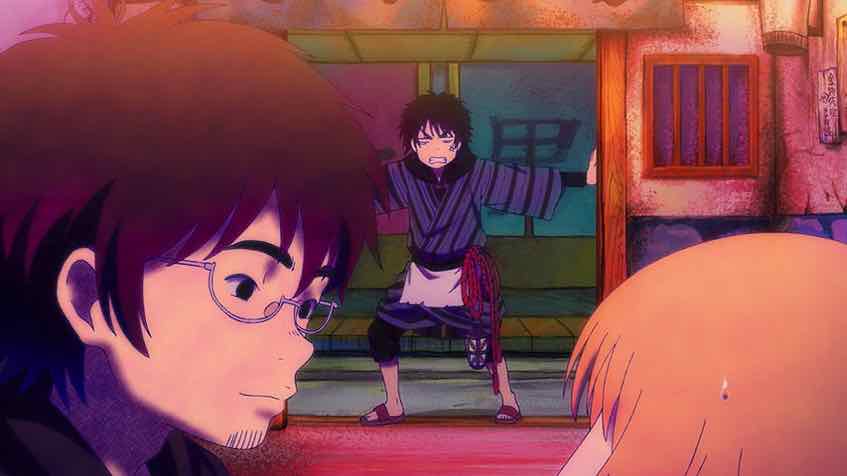
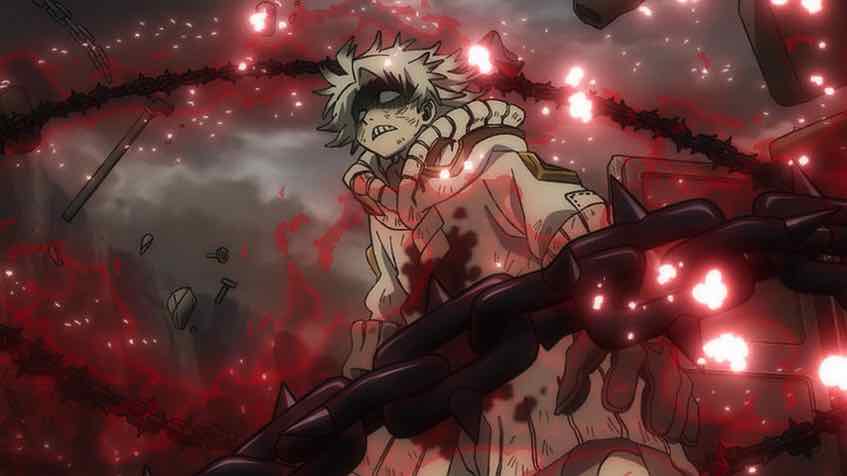
elianthos80
July 20, 2018 at 2:17 amThis episode felt very short yet quite a number of things happened. I’d say good job on pacing here and also in tweaking some of the content – overall that is- 🙂 .
I agree on some points and disagree on others re: disconnect.
Relatedly yet TANGENT warning: BF is in many ways a product of its time – it ran from the Mid-Eighties to the mid-Nineties after all – furthermore if you are somewhat familiar with the big bad (badder. baddest. here be dragons and peril and pain) seminal shoujo manga that preceded it – one decades older – some of its core elements’ perceived outlandishness do fit a good chunk of manga zeitgeit. Seen in context it does vibes differently.
Planet Shoujo had turned rather… interesting and fearless around that time with all the pros and cons and growing pains and experimentation of the case. It can make for some rough and raw reading/watching experience but also deep impacting ones if and when you get used to the period quirks/possible cognitive dissonance of art style vs content – although on the latter front BF somwhow somber art style fares better than many. Even so I got pretty used and even charmed by that since Tezuka’s titles [ what about a certain relationship in his shonen title MW btw, hmm? talking of breaking boundaries and can of worms…] plus I grew up at the summit of vintage dramatic shoujo and shonen anime licensing paradise here so it doesn’t bother me – .
In more recent years a manga in the vein of BF would either more likely published in a BL ( but any way you slice it it’s not explicit enough for the gritty setting + action combo. For a yaoi relative pick Twittering Birds Never Fly) or a seinen magazine if queer relationships were not the exception to the rule ( for one such exception see Yoshinaga Fumi’s seinen Kinou No Nani Tabeta and also note the setting difference vs most of her BL works + vs Banana Fish ) .—————– END TANGENT ———
That said while the updated coat of paint can’t disguise the oldey times core it did manage to smooth, edit or remove entirely some of the wince-worthy details ( some attitudes and stereotyping have not aged that well esp. to a western eye, they tweaked a few things this week ) so that strain of disconnet or immersion breaker was taken care of this week at least.
On the other hand of the disconnect… indeed subjective is key. Especially Ash’s past and present predicament of abuse, grief and how he copes with that do not feel that outlandish unfortunately neither per se nor in presentation to me (some first hand experience. May you never have to brush with that). Clever Kiss(&Grope) Of Plot Convenience too make sense also emotionally for him. About the ramifications of that plot convenience based on what we have been shown we can also infer how actually desperate he must be to send the polevaulting lamb straight within reach of the wolves he knows. On Eiji’s part the lad might quick to realize when not to swallow but a Refuge In [Hot Pink Bea(co)n] Audacity – gotta love past fashion taste :°D – might not be the best plan.
P.S. : very glad they chose a certain VA for Lobo.
Guardian Enzo
July 20, 2018 at 2:22 amLet me clarify. It’s not Ash’s situation that I find unrealistic, it’s the way it’s treated by the writing. The abuse, prison rape, all of it sadly and perfectly realistic. But to me, there’s a showy quality to the way BF addresses it that makes it hard to feel like it’s really happening.
Yes, more HiraHiro is never a bad thing. He’s a legend for a reason.
elianthos80
July 20, 2018 at 4:08 amSee my tangent above. Compared to what came both before and after historically it’s isn’t ‘objectively’ that showy >>;; actually. it goes for a rather unshowy showiness in that specific area if anything.
In the survivor sense (and well either you are familiar with that and it clicks with you that way or not) is rather low key: you get the aftermath and the fallout, the excruciating live details are left offscreen ( I mean even the cheeky literal banana skit panned away from his mouth not to show the point of contact ) rather than being induged upon. It still conveys the happening feeling plenty * to me * because the aftermath and the fallout are what you have to live with and so far the direction choices haven’t crossed the line between lingering for expressive reasons and perving on the victim or amplifying it for the camera especially when he’s powerless. To me that’s the way BF manages te be respectful/sensitive instead of showy right in such moments.
TL;DR lost in translation notwithstanding agree to disagree? And that’s why it works for me.
elianthos80
July 20, 2018 at 6:31 ameeeeeeh multilingual autocorrect…. induLged*
elianthos80
July 21, 2018 at 8:13 amP.S. about the title of the episode that’s another Hemingway ref. https://en.wikipedia.org/wiki/Across_the_River_and_into_the_Trees
Yukie
July 20, 2018 at 6:09 amIt’s very interesting that you mention a disconnect, because that’s the general feeling I get whenever I read shounen-ai manga. They’re always somewhat fantastical, and I feel with the older ones, there’s especially a sense of theatricality to them (though I’m not sure if your idea of theatricality is similar to mine): one of the protagonists is always a victim of fate (here it’s Ash) who goes through all kinds of hardships throughout the manga, and the other one is either a hero, a savior (Eiji, I guess, but he’ll probably need to start getting streetwise fast), or the one causing the victim so much pain. In short, scenarios and characters are romanticized often for the sake of drama, and in the hands of less competent storytellers, the product may come off as ridiculous melodrama. I think you’re pretty correct in calling it “operatic”, and I feel a lot of the great shounen-ais are like that.
While I’ve never read the Banana Fish manga, I am blown away by the anime. The mangaka has managed to build several other plot threads on top of the main plot and so far they’re all handled quite well. I also think comparatively( to the majority of shounen-ais out there), it deals with quite realistic issues (in my case I find them quite gritty enough). Also loving the stylish, period feel to it (I actually forgot they’ve updated it).
Guardian Enzo
July 20, 2018 at 6:15 amI get that but in a way, it’s part of the problem. Whenever I feel myself forgetting they’ve updated it, they clumsily insert some conspicuous reminder to make sure we don’t forget, and the disconnect hits. I wish they’d just skipped that process altogether and let it stand as it was.
Yukie
July 20, 2018 at 8:04 amAhh I see what you mean. I felt the same way in episode 1 when the smart phone popped up.
Larry
July 20, 2018 at 8:37 amIts not a shounen-ai. Its literally labelled as a shoujo manga. Anything that wasn’t cis-heteronormative was labelled shoujo during the 80s.
Yukie
July 20, 2018 at 9:23 pmlol. I should’ve known better considering I already saw all the manga readers correcting everyone getting the genre wrong on Reddit.
Guardian Enzo
July 20, 2018 at 9:52 pmGenre is somewhat subjective if you ask me. I think this series definitely has shounen-ai elements.
elianthos80
July 21, 2018 at 3:40 amAgain… they are demographic label not genre ones, to get which is which you check out the target audience of their original magazines (or the ones most of the story was published it in case they switched mags and sometimes demographic… but the latter scenario is more of recent development) . Manga-updates is a site that gives you that kind of info btw.
Back then it was either shoujo or shounen. Banana ended up published in a shoujo magazine. Hence shoujo. And honestly sometimes I wished the labelling had stopped at that stage because the more demographic labels you add the more cagey they become in most cases – plus this whole genre instead of demographic misunderstanding that is a whole load of excrete and ultimately just fuels the ghetto prejudice du jour – . You want the genre(s)/style/content clues? Look at which magazine a title belong to because they each mag has a specific editorial line – again look up the magazine tags under maga works at manga-updates, after a while you see the patterns and can predict with decent accuracy if a certain manga is likely to fit your taste or not. While editorial lines can change over time (and there are some authors working across difefrent demographics with a strong style regardless of magazine ) there is still a certain something differentiating a certain mag from another and this affects the content – . // Rant over.
Color2413
July 20, 2018 at 1:01 pmBanana Fish is by far my favorite anime of the summer season (but then again, No. 6 is my favorite anime of all time, even with its weak ending, so at least I’m consistent in liking strong, first-rate dramas with protagonists who happen to be gay).
That being said, I see what Enzo means about “romanticism.” Although I no longer live there, I happen to have grown up in the New York City area, and the NYC depicted in BF is a fantasy city, filtered through the lens of dramatic artifice. It has little to do with real-world NYC except for the architecture. For gay men, the overwhelming reality of NYC in the ’80s was the AIDS holocaust, which had permeated every aspect of NYC’s gay culture as gay men saw their social circles decimated. We see none of this in BF.
Ed Koch (by all accounts, a closeted gay man) was mayor, and he started the clean-up that Giuliani would later accelerate in the ’90s, cutting the murder rate by 75% compared to its peak in the ’70s. Frank Serpico’s testimony before the Knapp commission in 1971 had shocked in conscience of New Yorkers and started a clean-up of police corruption well before the era depicted in BF. The idea in BF that people could be thrown in prison without due process in order to facilitate a mafia revenge plot is unrealistic for the time and place. Moreover, by the ’80s in NYC, the Italian mafia was a considerably enervated force compared to its peak in the early part of the 20th century.
So, as Enzo says, BF is artifice, and ahistorical artifice at that. But very engaging artifice it is! So far, after each episode, I though “it’s over already?” I love the brisk pacing, the big drama, and the sense of strangeness and *danger*. And now that we know that Ash is something of an intellectual behind his tough guy exterior, I’m getting a hint of No. 6’s Nezumi (an antihero who lived in an underground library and loved Shakespeare above all other authors). In short, definitely my kind of anime, and I’m delighted we are going to get a full 2 cours out of it.
I used to tell people that if something like “Legend of the Galactic Heroes” is space opera, then No. 6 is chamber music. I am pleased that BF is going more for “operatic”; “outsider” anime like BF and No. 6 can profit from both.
Stefan
July 20, 2018 at 1:25 pmWhat is it with Shakespeare and his ability to infect all minds and cultures with disregard for time and place? His abstract memes are on a completely different level from any other human I know of (which, given the meaning of memetic propagation, means on a level completely different from ANY human at all).
Albione
July 22, 2018 at 12:37 pmI am still loving it even if I read the manga. The bit that hit me hard this week was when Ash replied “I want to live” when askd why he did not resist being raped. So much behind this. It is operatic like the great shoujos were. Versailles no bara is the benchmark for me; canI continue to watch as all goes to hell? A good modern similar manga to BF (and much influenced by it) is Acid Town. I think it is published by a seinen magazine, but I might be wrong.
elianthos80
July 22, 2018 at 2:42 pm* perking up at the mention of Versailles No Bara * truthfully many of the big titles of the time (including shonen ones and even children/general ones from World Masterpiece Theater https://en.wikipedia.org/wiki/World_Masterpiece_Theater like Dog Of Flanders and the first Ie Naki Ko Remì anime – the boy MC version – ) had that go big or go home and No One Is Safe Oh Tragedy Oh Suffering/Oh The Ethos OF Sacrifice vibe [ shoujo might just look comparatively more flowery and sparkly… to suckerpunch you better XDD ].
RoV is pretty operatic both in anime and in manga form – although in complementary ways
and by golly I’ve loved RoV for 35 years now– even among its period peers ( and RoV and Oniisama’s mangaka Ryoko Ikeda ended up studying to be an opera singer, so… :°) ) but imho Garasu No Kamen, Ace O Nerae! and Oniiisama E – the latter in anime form especially – are also as much dramatic if not more – .Ashita No Joe on the boy’s titles side down to certain shonen works from the Eighties ( to this day I’ve never seen so much fluvial bromantic manpain as in earlyJojo arcs and Kenshiro over the death of a comrade. More tears than Achilles’ over Patroclus and Achilles was honestly quite the petty drama queen ) carry a similar spirit… but with more literal punches :P.
————
BTW Acid Town —> https://www.mangaupdates.com/publishers.html?pubname=Rutile <— BL magazine
Albione
July 23, 2018 at 12:30 amI always though Onisama e was RoV transposed to a modern school setting with Oscar split into two, both tragic in different ways. The protagonist is Rosalie. Remi has become family lexicon “at least spare the monkey” that I sobbed at six is now used when watching drama nearly 40 years later. Thanks for the Acid Town link, since there is little love going on (mostly self-hate, revenge and regret) I would not quite file it into BL. Sorry Enzo for taking over your blog, this is the BF effect, good anime bring out cross cultural refrences to oldies.